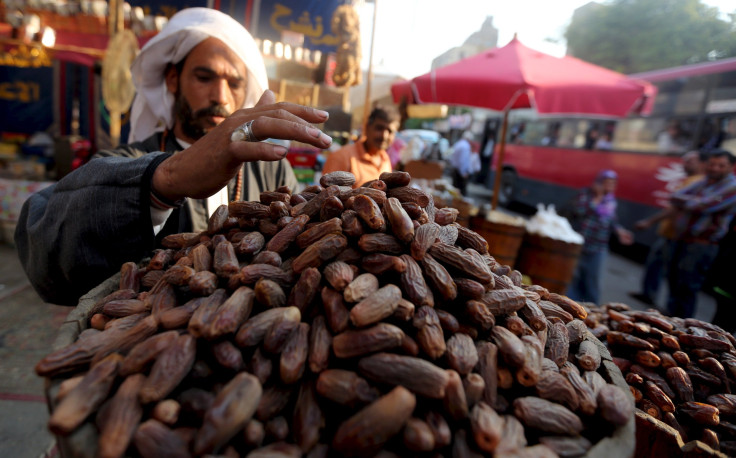Ramadan 2015: Fasting Rules, Quick Facts And Survival Tips For Muslim Holy Month

As Muslims round the world look to the sky Tuesday night for that sliver of moon marking the start of Ramadan, they will also be preparing themselves for a month of daily fasting, from sunup to sundown. Abstaining from food and drink for so many hours is challenging, to say the least, so here are some key tips and rules about fasting during Ramadan. Even if you're not Muslim and don’t fast, consider taking note, because chances are a friend, co-worker or acquaintance is and does.
Fasting, or “sawm” in Arabic, begins 20 minutes before dawn (fajr) and ends at sundown (maghrib). It applies to able-bodied adults, meaning that children; pregnant, breastfeeding or menstruating women; travelers; the elderly; and the ill are exempt. Those who fast must abstain from eating or drinking, sex, smoking and telling lies, among other practices. In addition to fasting, Muslims are supposed to pray five times daily during Ramadan, a month of self-reflection and self-control.
Those who miss or skip a day of fasting during Ramadan must make up for it at another time. Menstruating women, for instance, are not supposed to fast, and so when their cycles end, they should fast on another day of the year. The same goes for travelers of long distances (the minimum threshold ranges from 27.5 miles to 50 miles, depending on whom you ask).
In some parts of the world, when Ramadan falls during the summer, fasting can span nearly 22 hours. That’s almost a full day with no food or water. Whether your fast lasts eight hours or more than 20, here are several ways to make the day a little easier.
The first is to eat suhoor, a breakfast meal that is supposed to be eaten about half an hour before sunrise, because it will provide your body with critical nutrients to help it function until sundown. Fresh or dried fruits, fresh vegetables, halal meat, bread and cheese are often served. Drinking water during suhoor is critical. It is a mistake not to eat this important meal, religious scholars have said.
When breaking the fast, in the meal known as iftar, it can be tempting to eat just about anything set before you as soon as the sun sets. But try to hold back. Traditionally, the fast is broken with dates, which have essential carbs, lots of potassium and magnesium, and plenty of fiber, all of which are important for the body after a day of deprivation. Drink water to rehydrate, and slowly eat whole grains and fibrous foods that have protein and healthy fats so as to keep blood sugar levels stable, nutritionists recommend. To make fasting a little easier on your body, make sure that when you do eat, your diet consists of healthy and nutritious food, like lentils, beans, nuts, eggs and yogurt.
For those who follow a regular workout routine, fasting can present challenges, but it’s not impossible to continue exercising during Ramadan. The best time to work out is at night, or before suhoor, the predawn meal, because the body is hydrated then, sports nutritionist Rehan Jalali advises, the Los Angeles Times reported. Ramadan is also the perfect opportunity to focus on shorter but better workouts, and Jalali recommends doing resistance and strength training instead of cardio.
© Copyright IBTimes 2024. All rights reserved.






















